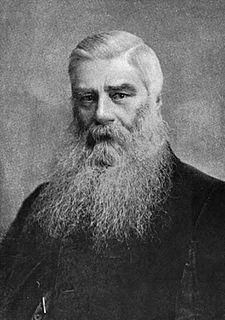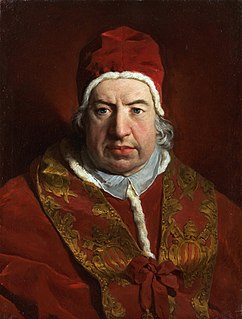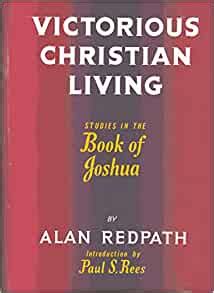Top 1200 Christian Easter Quotes & Sayings - Page 15
Explore popular Christian Easter quotes.
Last updated on December 22, 2024.
y feelings as a Christian points me to my Lord and Savior as a fighter. It points me to the man who once in loneliness, surrounded by a few followers, recognized these Jews for what they were and summoned men to fight against them and who, God's truth! was greatest not as a sufferer but as a fighter. In boundless love as a Christian and as a man I read through the passage which tells us how the Lord at last rose in His might and seized the scourge to drive out of the Temple the brood of vipers and adders.
When we assume God to be a guiding principle well, sure enough, a god is usually characteristic of a certain system of thought or morality. For instance, take the Christian God, the summum bonum: God is love, love being the highest moral principle; and God is spirit, the spirit being the supreme idea of meaning. All our Christian moral concepts derive from such assumptions, and the supreme essence of all of them is what we call God.
A Christian's first duty is to God. It then follows, as a matter of course, that it is his duty to carry his Christian code to the polls and vote them... If Christians should vote their duty to God at the polls, they would carry every election, and do it with ease... it would bring about a moral revolution that would be incalculably beneficent. It would save the country.
As a newborn baby breathes and cries, so the signs of life in a newborn Christian are faith and repentance, inhaling the love of God and exhaling an initial cry of distress. And at that point what God provides, exactly as for a newborn infant, is the comfort, protection, and nurturing promise of a mother. "If God is our father, the church is our mother." The words are those of the Swiss Reformer John Calvin ... it is as impossible, unnecessary, and undesirable to be a Christian all by yourself as it is to be a newborn baby all by yourself.
To be a true hero you must be a true Christian. To sum up then, heroism is largely based on two qualities- truthfulness and unselfishness, a readiness to put one's own pleasures aside for that of others, to be courteous to all, kind to those younger than yourself, helpful to your parents, even if helpfulness demands some slight sacrifice of your own pleasure. . .you must remember that these two qualities are the signs of Christian heroism.
Is a Christian- one who communicates daily with the Creator- to divorce himself from the things God created and intended man to have, and which demonstrate the fact that man has been made in the image of God? In other words, are we who have been made in the image of our creator to be less creative than those who do not know the Creator? The Christian should have more vividly expressed creativity in his daily life.
Our understanding of early Christian beginnings is usually monolithic. It is much determined by the Acts of the Apostles, which pictures a straightforward development from the primitive community in Jerusalem founded on Pentecost to the world-wide mission of Paul climaxing with his arrival in Rome, the political centre of the Greco-Roman world. The Pauline epistles are understood not so much as historical sources reflecting a much more multifaceted early Christian situation fraught with tensions but as theological treatises expounding and defending the doctrine of justification by faith.
problematic within post-Reformation dogmatics. Is faith something I `do' to earn God's favour, and, if not, what role does it play? Once we release Paul's justification-language from the burden of having to describe `how someone becomes a Christian', however, this is simply no longer a problem. There is no danger of imagining that Christian faith is after all a surrogate `work', let alone a substitute form of moral righteousness. Faith is the badge of covenant membership, not something someone `performs' as a kind of initiation test.
When we look at a painting, or hear a symphony, or read a book, and feel more Named, then, for us, that work is a work of Christian art. But to look at a work of art and then to make a judgment as to whether or not it is art, and whether or not it is Christian, is presumptuous. It is something we cannot know in any conclusive way. We can know only if it speaks within our own hearts, and leads us to living more deeply with Christ in God.
The so-called Christian nations are the most enlightened and progressive ... but in spite of their religion, not because of it. The Church has opposed every innovation and discovery from the day of Galileo down to our own time, when the use of anesthetic in childbirth was regarded as a sin because it avoided the biblical curse pronounced against Eve. And every step in astronomy and geology ever taken has been opposed by bigotry and superstition. The Greeks surpassed us in artistic culture and in architecture five hundred years before Christian religion was born.
THE NINETEENTH CENTURY SPREAD OF CHRISTIANITY WAS DUE PRIMARILY TO A NEW BURST OF RELIGIOUS LIFE EMANATING FROM THE CHRISTIAN IMPULSE. . . . NEVER IN ANY CORRESPONDING LENGTH OF TIME HAD THE CHRISTIAN IMPULSE GIVEN RISE TO SO MANY NEW MOVEMENTS. NEVER HAD IT HAD QUITE SO GREAT AN EFFECT UPON WESTERN EUROPEAN PEOPLES. IT WAS FROM THIS ABOUNDING VIGOR THAT THERE ISSUED THE MISSIONARY ENTERPRISE WHICH DURING THE NINETEENTH CENTURY SO AUGMENTED THE NUMERICAL STRENGTH AND THE INFLUENCE OF CHRISTIANITY.
Because the Christian God is not a lonely God, but rather a communion of three persons, faith leads human beings into the divine communion. One cannot, however, have a self-enclosed communion with the Triune God- a "foursome," as it were-- for the Christian God is not a private deity. Communion with this God is at once also communion with those others who have entrusted themselves in faith to the same God. Hence one and the same act of faith places a person into a new relationship both with God and with all others who stand in communion with God.
Just the other day the AP wire had a story about a man from Arkansas who entered some kind of contest and won a two-week vacation--all expenses paid--wherever he wanted to go. Any place in the world: Mongolia, Easter Island, the Turkish Riviera . . . but his choice was Salt Lake City, and that's where he went. Is this man a registered voter? Has he come to grips with the issues? Has he bathed in the blood of the lamb?
There are no unique postures and times and limitations that restrict our access to God. My relationship with God is intimate and personal. The Christian does not go to the temple to worship. The Christian takes the temple with him or her. Jesus lifts us beyond the building and pays the human body the highest compliment by making it His dwelling place, the place where He meets with us. Even today He would overturn the tables of those who make it a marketplace for their own lust, greed and wealth.
It wouldn't matter if every single President since Washington had been a Bible-toting, evangelical Christian. They weren't, of course, but even if they had been, it still would not change the secular foundation of our republic. Christians like to quote various Presidents or Supreme Court Justices who (quite incorrectly) have referred to our "Christian nation." But what do those quotes prove? I could quote Richard Nixon, but would that prove that ours was intended to be a nation of crooks?
Radical Christians are not people who wear Christian t-shirts. Radical Christians are those who bear fruit of the Holy Spirit...A little boy, Andrew, a Muslim shot him five times through the stomach and left him on a sidewalk simply because he said, 'I am so afraid, but I can not deny Jesus Christ! Please don't kill me! But I will not deny Him!' He died in a pool of blood, and you talk about being a radical Christian because you wear a t-shirt!
Jeff Chu's pilgrimage across America to discover his own place as a gay man in the Christian church as well as attitudes about being gay and Christian across denominations is at once timely, smart, poignant, disturbing, inspiring, and maddening. It's essential reading for anyone who cares about the rights of the LGBTQ community to be treated as equal citizens at every level, including the religious-which means it should be essential reading for everybody.
We recognize a tree by its fruit, and we ought to be able to recognize a Christian by his action. The fruit of faith should be evident in our lives, for being a Christian is more than making sound professions of faith. It should reveal itself in practical and visible ways. Indeed it is better to keep quiet about our beliefs, and live them out, than to talk eloquently about what we believe, but fail to live by it.
Feeble are we? Yes, without God we are nothing. But what, by faith, every man may be, God requires him to be. This is the only Christian idea of duty. Measure obligation by inherent ability! No, my brethren, Christian obligation has a very different measure. It is measured by the power that God will give us, measured by the gifts and possible increments of faith. And what a reckoning will it be for many of us, when Christ summons us to answer before Him under the law, not for what we are, but for what we might have been.
Apart from it, the incarnation and the ministry would lose all their significance, the crucifixion would be but a martyrdom, and the cross a symbol of the victory of death over life. By the Resurrection it was that the Crucified One was "declared to be the Son of God with power," the great truth on which the Christian's faith is founded, and to which his hope is anchored. That Christ died for our sins is the Gospel of the Christian religion regarded as a human cult. The Gospel of Christianity goes on to declare "That He rose again the third day according to the Scriptures"
The observance of Lent is the very badge of Christian warfare. By it we prove ourselves not to be enemies of Christ. By it we avert the scourges of divine justice. By it we gain strength against the princes of darkness, for it shields us with heavenly help. Should men grow remiss in their observance of Lent, it would be a detriment to God’s glory, a disgrace to the Catholic religion, and a danger to Christian souls. Neither can it be doubted that such negligence would become the source of misery to the world, of public calamity, and of private woe.
The nature of men and of organized society dictates the maintenance in every field of action of the highest and purest standards of justice and of right dealing.... By justice the lawyer generally means the prompt, fair, and open application of impartial rules; but we call ours a Christian civilization, and a Christian conception of justice must be much higher. It must include sympathy and helpfulness and a willingness to forego self-interest in order to promote the welfare, happiness, and contentment of others and of the community as a whole.
Under the old social philosophy which had governed the Middle Ages, temporal, and therefore all economic, activities were referred to an eternal standard. The production of wealth, it distribution and exchange were regulated with a view to securing the Christian life of Christian men. In two points especially was this felt: First in securing the independence of the family, which can only be done by the wide distribution of property, in others words the prevention of the growth of a proletariat; secondly, in the close connection between wealth and public function.
One of the marks of a certain type of bad man is that he cannot give up a thing himself without wanting every one else to give it up. That is not the Christian way. An individual Christian may see fit to give up all sorts of things for special reasons--marriage, or meat, or beer, or the cinema; but the moment he starts saying the things are bad in themselves, or looking down his nose at other people who do use them, he has taken the wrong turning.
Fortunately, the DC Universe is full enough and replete enough with every kind of character that you could want, that it's not that hard to find the right character. Sometimes it's nothing more than an Easter egg, or a name drop, and sometimes it's someone like 'Deathstroke,' who is a huge part of the DC Universe.
I am no preacher of the old legal Sabbath. I am a preacher of the gospel. The Sabbath of the Jew is to him a task; the Lord's Day of the Christian, the first day of the week, is to him a joy, a day of rest, of peace, and of thanksgiving. And if you Christian men can earnestly drive away all distractions, so that you can really rest today, it will be good for your bodies, good for your souls, good mentally, good spiritually, good temporally, and good eternally.
Deep down in the Christian's life, always and all the time, there is to be a "no" to every demand that the flesh may make for recognition, and every demand that the flesh may make for approval, and every demand that the flesh may make for vindication. Always the Christian must bear about in his body the marks of the Lord Jesus.
Why did the consensus of Christian churches not only accept these astonishing views but establish them as the only true form of Christian doctrine? . . . these religious debates - questions of the nature of God, or of Christ - simultaneously bear social and political implications that are crucial to the development of Christianity as an institutional religion. In simplest terms, ideas which bear implications contrary to that development come to be labeled as 'heresy'; ideas which implicitly support it become 'orthodox.'
How, then,' I hear you ask, 'shall I attain my end, whether it be Christian love, socialism, or American democracy?' Your Christian love and your socialism and your American democracy are what you do each day, your manner of thinking each hour, of embracing your life companion and loving your child; they are your attitude of social responsibility towards your work, and your determination not to become like the crushers of life you so hate.
The metaphor is so obvious. Easter Island isolated in the Pacific Ocean — once the island got into trouble, there was no way they could get free. There was no other people from whom they could get help. In the same way that we on Planet Earth, if we ruin our own [world], we won't be able to get help.
It's no understatement that the church has done a poor job in teaching our young people that reason and faith are not opposites, and that atheists are far from being on the side of reason. You can find on our website a chart which I use to demonstrate the various worldviews work out, and which one, Christianity, is rational. Many kids, however, who grow up huddled in a Christian environment find themselves in the university setting completely unequipped to defend the rationality of the Christian faith against the secular humanist worldview so prevalent on college campuses.
Christian love is the only kind of love in which there is no rivalry, no jealousy. There is jealousy among the lovers of art; there is jealousy among the lovers of song; there is jealousy among the lovers of beauty. The glory of natural love is its monopoly, its power to say, 'It is mine. ' But the glory of Christian love is its refusal of monopoly.
Faith, Hope & Love. Faith is directed towards God, love towards others (both within the Christian fellowship and beyond it) and hope towards the future, in particular, the glorious coming of our Lord Jesus Christ. Similarly, faith rests of the past; love works in the present; hope looks to the future. Every Christian without exception is a believer, a lover and a hoper. Faith, hope and love are three sure evidences of regeneration by the Holy Spirit.
A truly Christian love, either to God or men, is a humble broken-hearted love. The desires of the saints, however earnest, are humble desires. Their hope is a humble hope; and their joy, even when it is unspeakable and full of glory, is a humble broken-hearted joy, and leaves the Christian more poor in spirit, and more like a little child, and more disposed to a universal lowliness of behaviour.
Lent is like a long 'retreat' during which we can turn back into ourselves and listen to the voice of God, in order to defeat the temptations of the Evil One. It is a period of spiritual 'combat' which we must experience alongside Jesus, not with pride and presumption, but using the arms of faith: prayer, listening to the word of God and penance. In this way we will be able to celebrate Easter in truth, ready to renew the promises of our Baptism.
Every Christian who struggles with depression struggles to keep their hope clear. There is nothing wrong with the object of their hope - Jesus Christ is not defective in any way whatsoever. But the view from the struggling Christian's heart of their objective hope could be obscured by disease and pain, the pressures of life, and by Satanic fiery darts shot against them... All discouragement and depression is related to the obscuring of our hope, and we need to get those clouds out of the way and fight like crazy to see clearly how precious Christ is.
When are Christian folks going to remember that every time you call yourself a Christian, you invoke the name of God, and that if you then walk a walk that does not reflect the presence of Christ in your life, cast a vote that does not reflect the presence of Christ in your life, then you are taking the name of the Lord your God in vain?
... it was religion that saved me. Our ugly church and parochial school provided me with my only aesthetic outlet, in the words ofthe Mass and the litanies and the old Latin hymns, in the Easter lilies around the altar, rosaries, ornamented prayer books, votive lamps, holy cards stamped in gold and decorated with flower wreaths and a saint's picture.
Q. What is your view of the daily discipline of the Christian life - the need for taking time to be alone with God? Lewis: "We have our New Testament regimental orders upon the subject. I would take it for granted that everyone who becomes a Christian would undertake this practice. It is enjoined upon us by Our Lord; and since they are his commands, I believe in following them. It is always just possible that Jesus Christ meant what he said when He told us to seek the secret place and to close the door.
Therefore, when a person refuses to come to Christ it is never just because of lack of evidence or because of intellectual difficulties: at root, he refuses to come because he willingly ignores and rejects the drawing of God's Spirit on his heart. No one in the final analysis really fails to become a Christian because of lack of arguments; he fails to become a Christian because he loves darkness rather than light and wants nothing to do with God.
Prince was outside his dressing room, shaking one of those little Easter egg maracas. His hair was straightened to a soft wave; his eyelashes were unfairly lovely. He smelled like the most expensive shelf in the Sephora perfume aisle. This man wearing eyeliner, heels and ladies' perfume somehow managed to be more masculine than the burly bodyguard.
Where is fate and who is fate? We reap what we sow. We are the makers of our own fate. None else has the blame, none else has the praise. We make our own destiny.
The Christian is not to become a Hindu or a Buddhist, nor a Hindu or a Buddhist to become a Christian.
Each must assimilate the spirit of other religion and yet preserve his individuality and follow his own law of growth.
Teachers complain a lot about how tough their job is. But, you know, the day begins in most schools at nine o'clock, ends at 3.30 P.M. They have six weeks' holiday during the summer, two weeks' holiday at Easter and at Christmas. Yes, they don't just work when they're at school, but even so, compared to a lot of other jobs, it's not that tough.
It shouldn't be difficult, then, to make the transposition at this point into the early Christian vision of Jesus and the Spirit and the way in which the material world is both celebrated and renewed through their work. The Jewish basis for the early Christian patterns of belief and behavior is clear. It is important that God's people are embodied, because God made this world and has no intention of abandoning it. The material of creation is a vessel made to be filled with God's new life and glory, even though the transformation may involve suffering, persecution, and martyrdom.
An atheist, like a Christian, holds that we can know whether or not there is a God. The Christian holds that we can know there is a God; the atheist, that we can know there is not. The Agnostic suspends judgment, saying that there are not sufficient grounds either for affirmation or for denial. At the same time, an Agnostic may hold that the existence of God, though not impossible, is very improbable; he may even hold it so improbable that it is not worth considering in practice. In that case, he is not far removed from atheism.
In short, I didn't become a Christian because God promised I would have an even happier life than I had as an atheist. He never promised any such thing. Indeed, following him would inevitably bring divine demotions in the eyes of the world. Rather, I became a Christian because the evidence was so compelling that Jesus really is the one-and-only Son of God who proved his divinity by rising from the dead. That meant following him was the most rational and logical step I could possibly take.
The Bible is one long story of God meeting our rebellion with His rescue, our sin with His salvation, our guilt with His grace, our badness with His goodness. The overwhelming focus of the Bible is not the work of the redeemed but the work of the Redeemer. Which means that the Bible is not first a recipe for Christian living but a revelation book of Jesus who is the answer to our un-Christian living.
In every Christian's Heart, there is a cross and a throne, and the Christian is on the throne till he puts himself on the cross; if he refuses the cross, he remains on the throne. Perhaps this is at the bottom of the backsliding and worldliness among Gospel believers today. We want to be saved, but we insist that Christ do all the dying. No cross for us, no dethronement, no dying. We remain king within the little kingdom of man's soul and wear our tinsel crown with all the pride of a caesar; but we doom ourselves to shadows and weakness and spiritual sterility.
What happened on that day (of Easter) became, was and remained the centre around which everything else moves. For everything lasts its time, but the love of God - which was at work and was expressed in the resurrection of Jesus Christ from the dead - lasts forever. Because this event took place, there is no reason to despair, and even when we read the newspaper with all its confusing and frightening news, there is every reason to hope.
The Christian life is stamped by 'moral spontaneous originality,' consequently the disciple is open to the same charge that Jesus Christ was, viz., that of inconsistency. But Jesus Christ was always consistent to God, and the Christian must be consistent to the life of the Son of God in him, not consistent to hard and fast creeds. Men pour themselves into creeds, and God has to blast them out of their prejudices before they can become devoted to Jesus Christ.























































